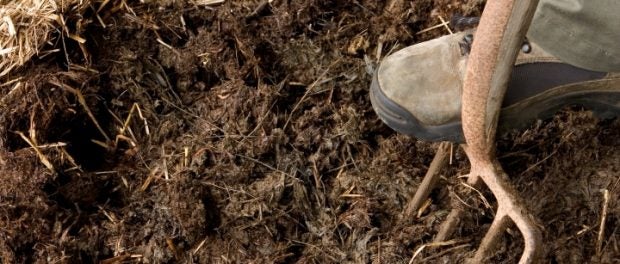Soil Health Research Grants Available

Soil Health Research Grants from OFRF and FFAR – 2019
Soil health is a critical component of organic farm management. The Organic Farming Research Foundation (OFRF) and the Foundation for Food and Agriculture Research (FFAR) are funding two soil health research projects that examine how diversification practices control weeds and increase yields. OFRF and FFAR funded these two soil health research grants as part of a larger initiative to support soil health research and promote environmental sustainability. A grant to Dr. Jed Eberly at Montana State University was announced earlier this year.
Implementing diversification practices, such as crop rotations and cover cropping, is one way organic farmers build soil health. Efficient use of organic fertilizers in combination with these practices can enhance soil fertility, but determining how much organic fertilizer to apply is a key challenge; too much fertilizer wastes money and pollutes the environment, while too little can impede crop growth. However, there is still much to learn about how diversification practices affect the availability of nutrients in the soil. Addressing this question would help farmers reduce added costs and environmental impacts associated with nutrient losses from organic fertilizers.
At UC Berkeley, a team led by Timothy Bowles, Assistant Professor of Agroecology, is working to help solve this problem. This research will help farmers make more informed decisions about nutrient management, in particular, which type of organic fertilizer to use and how to time fertility applications on diversified organic farms.
The second soil health research grants project focuses on the southern region of the U.S., an area where weed, insect, and fertility management challenges have made it hard to meet the steady demand for organic sweet potatoes. Currently, many organic sweet potato farmers depend on repeated cultivation to manage weeds, a process that is energy and labor intensive, and damaging to soil health. Their crops are also regularly damaged by invasive pests. For example, the wireworm can damage up to 40 percent of the sweet potato crop in North Carolina, negatively impacting farmers’ profitability. Led by Alex Woodley, an Assistant Professor at North Carolina State University, this soil health research grants project assesses the viability of annual winter cover crop systems as an effective tool for weed and insect control. The project also evaluates the effects of increasing rates of organic nitrogen fertilizer in each cover crop treatment. This systems-level approach has the potential to provide innovative management techniques to sweet potato farmers in North Carolina that protect soil health.
“We are pleased to partner with FFAR to fund this innovative research,” said Brise Tencer, OFRF’s Executive Director. “The goal is to help organic producers and others interested in building soil health make more informed decisions about managing fertility on their farms and ranches.”
“Soil health plays a critical role in supporting productive, sustainable agriculture from the ground-up,” said FFAR’s Executive Director Sally Rockey. “Investing in innovative soil health management techniques benefits the environment, enhances crop productivity and supports farmer profitability.
In July, OFRF announced their Fall 2019 Request for Letters of Intent (LOI) for 2020 soil health research grants funding. The deadline to submit an LOI is Friday, August 16, 2019. Successful applicants will be notified in fall 2019 and invited to submit a full proposal. More information is available here.
Overall, OFRF grant funding has advanced scientific knowledge and improved the practices, ecological sustainability, and economic prosperity of organic farming. These successes support their goal of researchers and farmers working collaboratively to support the improvement and widespread adoption of organic agriculture. Project results are shared freely at ofrf.org. OFRF also provides free access to all of its educational materials and resources.
The Foundation for Food and Agriculture Research (FFAR), a 501 (c) (3) nonprofit organization established by bipartisan congressional support in the 2014 Farm Bill, builds unique partnerships to support innovative and actionable science addressing today’s food and agriculture challenges. FFAR leverages public and private resources to increase the scientific and technological research, innovation, and partnerships critical to enhancing sustainable production of nutritious food for a growing global population. The FFAR Board of Directors is chaired by Mississippi State University President Mark Keenum and includes ex officio representation from the U.S. Department of Agriculture and National Science Foundation.
(OFRF) is a non-profit foundation that works to foster the improvement and widespread adoption of organic farming systems. OFRF cultivates organic research, education, and federal policies that bring more farmers and acreage into organic production.
- For more information on finding farm related funding including loans and grants visit https://www.beginningfarmers.org/funding-resources/
- Find tons of other useful farming resources at https://www.beginningfarmers.org/additional-farming-resources/








 Your Privacy Choices
Your Privacy Choices
Leave a comment